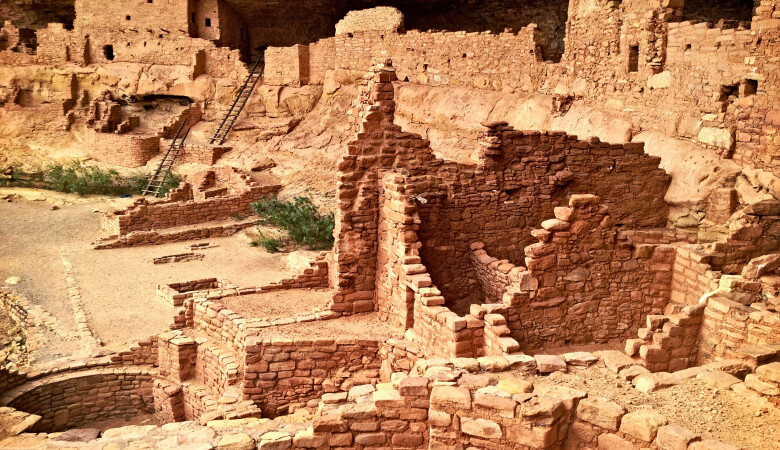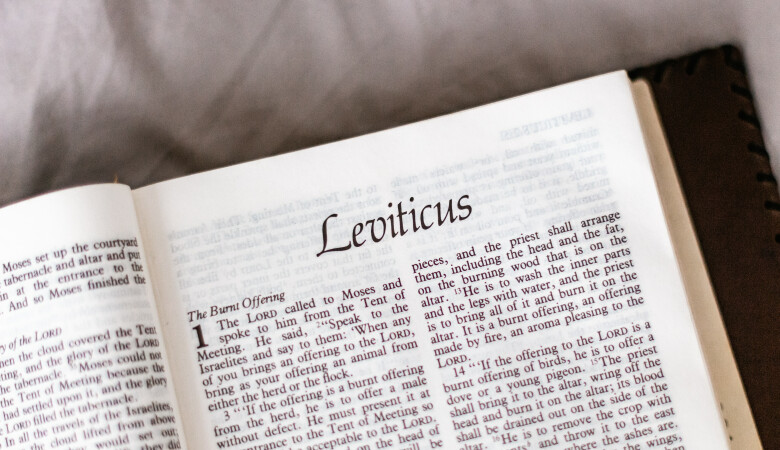Jesus, Death-Destroyer and Gentle Priest (Hebrews Sermon 8 of 74)
November 07, 2010 | Andy Davis
Hebrews 2:14-18
Deity of Christ
A Slave Trader’s Fear of Death
The Famous hymn says, "T'was grace that taught my heart to fear. And grace my fears relieved." Of course that's coming from Amazing Grace, arguably the most popular hymn in the world. One immediately recognizable even to many non-church people. Written by John Newton, I think, as a personal testimony that he was giving of how God saved him. "A wretch," he called himself in that hymn. He was a famous sinner. The ship's captain, where he served as a slave-trading vessel, said he had never heard anyone blaspheme and swear like John Newton. Later, God put those gifts of verbal skill to better use. When he was converted, God transformed that ability but the captain of that ship, the Greyhound, said he invented swears no one had ever heard before. That was John Newton, he was a wretch, he was a wicked man. A blasphemer. But there was a night in March of 1748 while that ship, the Greyhound, was in the North Atlantic that a storm threatened to destroy the entire ship and everybody aboard. And Newton saw a man swept overboard where he had been standing just moments before.
And after hours of the crew bailing and just trying to empty that rapidly filling ship of water and just trying to stay afloat, he offered a desperate suggestion to the captain that might save the ship in some way. Captain ordered that it be done and Newton said, "If this will not do, then Lord have mercy on us all." He said those words. He then returned to the pump where he and another sailor were pumping and lashed himself to it so he wouldn't be swept overboard, and for 11 hours fought the storm and fought to stay alive. And during that time, he says in his later writings, he was thinking again and again about his own words. If this will not do, then the Lord have mercy on us all. And he started thinking about how afraid he was to die. He was afraid to die. He was afraid that after he died, he'd be sent to hell. And he knew that the only thing that could deliver him from death and hell was the mercy of the same Lord that he'd been blaspheming earlier that day. And that was the beginning of his conversion. T'was grace that taught his heart to fear and grace his fears relieved. These fears must be tied to death. To be afraid of death and the judgement that follows. It is appointed unto each one of us to die once and after that to face the judgement.
Some people don't have any idea why the grace of God would teach someone to fear. I remember Phil Driscoll who plays incredible trumpet and sings songs, did his version of Amazing Grace, changed the lyrics a little bit. T'was grace that taught my heart to love and grace my fears relieved. I think the original's better. It is God's grace that teaches us to fear his judgement, to fear death and hell. It is God's grace to us to teach us to fear those things. And I say to you, and I say it tenderly, there are some people sitting here today who do not fear death enough, who ought to fear death immeasurably more than you do. I say it to you tenderly because you are lost. You are not yet converted. You're not ready to face judgement, you're not ready to stand before God. You don't have Jesus as your Lord and Savior. And therefore, you greatly underestimate the danger that death is to you. Greatly underestimate it.
Jesus said this, "Do not fear those who kill the body and after that can do nothing to you. I'll tell you who to fear. Fear the one who after the death of the body has power to destroy both soul and body in hell. Yes, I tell you, fear him." It is grace to take Jesus' command there to heart, isn't it? And to fear the one who has power to destroy both soul and body in hell. But I also say to you tenderly that there are some here who fear death too much and ought not to fear death at all because you are Christians and Jesus has died for you, and he has liberated you from the bondage of slavery to fear of death. And that's what the text is talking about today. It's my delight to proclaim to you your Savior again, and to speak to you what he has achieved for you, and to speak to you Christians and encourage you and say, "Do not fear death ever again. Do not fear death." And so we're going to unfold Hebrews 2:14-18 in a very orderly and logical way. It's not a three-part outline, you notice. But it's a careful stepping through the text.
I. Jesus Shared in Our Humanity
I just want you to understand where we're heading but basically, we're going to cover this. Jesus became incarnate, he took on a human body, so that he could die, so he could destroy the devil and death, and so he could rescue us from bondage, from slavery to fear of death. So that he could take hold of Abraham's descendants and rescue them and be for us a merciful and faithful high priest, and in that way, step into our temptations and our sufferings when we are tempted and help us at our time of greatest need. So if I could sum all that up, Jesus took on a body to help you in your temptations. That's what it's about. We're going to learn how to invite Jesus, our merciful and high priest into our time of greatest weakness, our time of greatest suffering, that time of temptation. That's what this sermon is about. Let's start at the beginning.
In verse 14, it speaks of the mystery of the incarnation of Jesus taking on a human body. Verse 14, "Since the children have flesh and blood, he too shared in their humanity." This is the infinite mystery of the incarnation. The mystery of Christmas. God became man. AW Pink commenting on this verse said this:
"Another thing which makes it so difficult for us to grasp the wonder of the Divine incarnation is that there is nothing else which we can for a moment compare with it; there is no analogy which in any wise resembles it. It stands unique, alone, in all its solitary grandeur. We are thrilled when we think of the angels sent forth to minister for those who shall be heirs of salvation: that those wondrous creatures, which so far excel us in wisdom and strength, should have been appointed to be our attendants; that those holy creatures should be commissioned to encamp round about poor sinners; that the courtiers of Heaven should wait upon worms of the earth! Truly, that is a great wonder. But oh my brethren, that wonder pales into utter insignificance and, in comparison, fades away into nothingness, before this far greater wonder—that the Creator of angels should leave His throne on High and descend to this sin-cursed earth; that the very One before whom all the angels bow should, for a season, be made lower than they; that the Lord of glory, who had dwelt in "light unapproachable," should Himself become partaker of "flesh and blood"! This is the wonder of wonders." - Commentary on Hebrews, 131.
We can never get done thinking about the mystery of Christmas. It's an infinite mystery, beyond all question the mystery of godliness is great. He became a man, took on a human body. And so here we have described the fact of the incarnation and unfolded from that its reasons why Jesus became a man. It says since the children have flesh and blood, He too shared in their humanity. And the children are those that Christ is coming to save. And because they have flesh and blood, speaking there of their physical existence, because they have bodies, because they have a physical existence, not like the angels. The Greek expression says that these children have a fellowship together in flesh and blood. It unites the human race. We are all of us flesh and blood. It doesn't matter what race we come from. We share together this flesh and blood existence. It unites us. And Jesus had to join with us in that he had to become a partaker, a willing partaker of our human nature in order to save us. And so He had to take on a flesh and blood existence.
Strong Family Language
Now, there's a very strong family orientation to Hebrews 2. Lots of family language. I went over that last time that I preached on Hebrews. But just look again at some of the verses. Verse 11 it says, "Both the one who makes men holy, and those who are made holy are of the same family." So Jesus is not ashamed to call them brothers. And then we have here in verse 14, "Since the children have flesh and blood, He shared in their humanity." Verse 17, "For this reason He had to be made like his brothers in every way." This is a family thing. God has in view the family of God with Jesus as our perfect elder brother, and Jesus is a brother to all of those that he's saving. Or we use the language of children since the children have flesh and blood. And He wanted them to become partakers of the divine nature that we should become like God. Isn't that beautiful? We were originally created in the image of God. Sin has marred that image badly. But now redeemed in Christ we are created to be like God in true righteousness and holiness. It says in 2 Peter 1 that his precious promises are given to us so that through them, we "may participate in the divine nature."
Now there are some words that can keep you busy at night meditating on them. That we may participate in the divine nature. Become like God. In order for us to become like God, he had to become like us and take on this flesh and blood existence. And this plan was in God's mind before the creation of the world. It says in Romans 8:29, "For those whom God foreknew he predestined to be conformed to the likeness of his Son that he might be the firstborn among many brothers." It was God's plan from the beginning that Jesus would be the firstborn brother of a family of brothers and sisters, all of us conformed to his image, that we would be like Jesus. This is what we're predestined for in Jesus. And it's a beautiful thing. And so Hebrews 2 reverses the whole thing and says, what Jesus had to do to make that happen? In order for that to happen, he had to leave his father's throne and then come down to that stable in Bethlehem and take on flesh and blood.
II. So Jesus Can Die
And so he took on this existence and he did it so that he could die. These are the reasons for the incarnation. "Since the children have flesh and blood he too shared in their humanity so that by his death he might destroy" the devil. Jesus did it so he could die. You should just marvel at the courage and love of that. He entered the world with his eyes open. Now, of course, once a baby had to learn many things. But before he took on human flesh, he knew very well, he was doing it to die. Now, the Hebrew word for flesh, word is "basar." It's used of both man and beast. We're very similar to the beasts. It says in Genesis 2:7, "The Lord God formed the man from the dust of the ground and breathed into his nostrils the breath of life, and the man became a living being." Later in that same chapter, Genesis 2:19, it says, "Now the Lord God had formed out of the ground all the beasts of the field and the birds of the air." Both of us are formed out of the ground. We're very much like each other in this fleshly nature, flesh is muscle, sinews, intestines, vital organs, brains, those kinds of things.
And we are very much like the animals in that regard. It also means we're mortal. We can die. Our flesh can decay in this sin cursed world, not much different than deer that are dying by the side of the road and decaying. So it is with our bodies as well. Mortal bodies. The focus though in the verse is actually on blood, it reverses it. It's interesting that NIV puts it back in the normal order, flesh and blood. But it's actually blood and flesh in the Greek. The emphasis is really on blood. And I think in two senses, one in terms of kinship, family. It says in Act 17:26, in the King James Version it says, "And God hath made of one blood all nations of men for to dwell on the face of the earth." We are all of one blood, we're of one race together. And so, Jesus had to partake in that race. He had to be of the same blood as us. But I think even more significant is the fact that that blood had to be poured out for sin to be forgiven. He had to have blood in order to shed the blood for our sins.
Blood for Atonement
It says in Leviticus 17:11, "For the life of a creature is in the blood, and I have given it to you to make atonement for yourselves on the altar. It is the blood that makes atonement for one's life." Hebrews later will say in Hebrews 9:22, "without the shedding of blood there's no forgiveness." For us to be forgiven, Jesus had to come on from heaven to earth and have blood flowing in his blood vessels, so that he could shed his blood for us. He came to die. And so it says in Romans 3:25, it was Christ whom God put forward as a propitiation. We'll talk more about that in just a moment, but he put forward as a propitiation by his blood. Propitiation by his blood to be received by faith. I think there's also a focus here in Jesus' humanity on suffering. He took on blood and flesh so that he could share in our suffering. The pain that we go through, the pain that all of us endures. No one makes it through here unscathed, friends.
We all go through pain and suffering, and Jesus, in order to become a merciful and faithful high priest had to do it too. He had to go through suffering. And so, he goes through the pain of weariness. Think about Jesus sitting by the Samaritan well, where the woman is about to come, weary as he was from his journey or picture him asleep in the back of the boat on the cushion. He's tired. Or you think about the pain of thirst, how Jesus asked the Samaritan woman for a drink. And why did he do it? Well, first and foremost, he was thirsty. And secondly, he wanted to save her. And then on the cross, he cries out in fulfillment of scripture, but just out of his bodily needy, he cries out, I thirst. He was thirsty. He was also hungry. After fasting 40 days and 40 nights in the desert, it says in Matthew 4, in one of the great understatements, Jesus was hungry. That he was hungry. He went through all the pain that we do. He goes through the pain of temptation, which is I think the point of the passage here in verse 18, Jesus "suffered when he was tempted." And so he's able help those who are going through that kind of suffering.
He knows what fleshly temptation is like. The pain of injury, the flogging that the Roman soldiers gave to him, ripping his back to shreds and certainly, ultimately, the pain of death by crucifixion. Jesus took on flesh and blood so that he could suffer. The atonement could not be worked for us without death. Jesus came into the world to save the children from death. From the very beginning of our sin, there's a link between sin and death. Genesis 2:17, God said, "You may eat from any tree in the garden, but you must not eat from the tree of the knowledge of good and evil. For when you eat of it, you will surely die." That is the death penalty, and it was linked to disobedience, transgression of God's law from the very beginning. We know that the wages of sin is death. And if Jesus is going to save us, he must die. He must die. He must take on that death penalty. And so, we have in verse 17, propitiation. Propitiation by death. Look at verse 17, "Therefore he had to be made like his brothers in every respect, so that he might become a merciful and faithful high priest in service to God to make propitiation for the sins of the people."
Now, some of the translations are going to give you atonement there. They do that to reason with us that we don't know the word propitiation, or most people don't know it. Can I tell you? No one is born knowing the word propitiation. Everybody has to study and learn it at some point. If you don't presently know what the word propitiation means, this is your happy day. God has brought you here to learn that word. And not just so you can impress your friends with your knowledge of theology, but so that you can understand your salvation. What is propitiation? Propitiation has to do with the turning aside of the wrath of God by the shedding of a blood sacrifice. That God's wrath is averted because blood was shed on our behalf. That's what propitiation's all about.
Now earlier in last century, liberal theologians thought that the idea of propitiation was far too pagan for the noble high-minded religion of the Bible, which they were crafting or re-crafting. They figured the idea of an angry deity who is then appeased by blood sacrifices is clearly pagan and having nothing to do with the high-minded religion of the Bible so they wanted to do away with it. So they started re-translating the words giving you things like expiation, other things like that. But they were trying to get away from propitiation because it offended them that God would ever be seen to be angry with us. Surely God is never angry with us. We may be angry with God, but he's never angry with us. Friend, that's just not biblical. God's passionate reaction to our sin is wrath, it's anger. He is angry about sin. And he does avert his own wrath by the shedding of the blood of Jesus. That's called propitiation. And so this idea of propitiation, it is a pagan idea. I don't think it originated with the pagans. I think it originated with animal sacrifice that God established at the very beginning after Adam and Eve sinned. God originated it, but then the pagan religions twisted it and perverted it.
You know the story in the Trojan War Legend, JI Packer tells us this of Prince Paris, that he carried off Princess Helen to Troy and the Greeks were going to send their army and go rescue Helen, the face that launched a thousand ships. They're going to get her back and they're led by their general, Agamemnon. The problem is, that Poseidon apparently, perhaps with some other of his cohort gods or goddesses, is sending contrary winds and the fleet can't get underway. What does Agamemnon do? He calls for his precious daughter and sacrifices her to the gods. Packer, I think tongue-in-cheek, said the move paid off and the wind subsided and they were able to go.
So JI Packer talks about this idea of pagan propitiation. He says this is how it works,
There are various gods, none enjoying absolute dominion, but each with some power to make life easier or harder for you. Their temper is uniformly uncertain; they take offense at the smallest things—or they get jealous because they feel you are paying too much attention to other gods and other people and not enough to themselves, and then they take it out on you by manipulating circumstances to your heart.
"The only course at that point is to humor and mollify them by an offering. The rule with offerings is the bigger the better, for the gods are inclined to hold out for something sizeable. In this they are cruel and heartless, but they have the advantage, so what can you do? The wise person bows to the inevitable and makes sure to offer something impressive enough to produce the desired result. Human sacrifice, in particular, is expensive but effective. Thus pagan religion appears as a callous commercialism, a matter of managing and manipulating your gods by cunning bribery. And within paganism propitiation, the appeasing of celestial bad tempers, takes its place as a regular part of life, one of the many irksome necessities that one cannot get on without." - In My Place Condemned He Stood, 29-30).
Well, that's pagan propitiation. That's not what happened with Jesus. But I tell you this, God had an aggressive wrath against our sin and he appeased that wrath in only one way, by the shedding of Jesus' blood. Hence, the word propitiation in verse 17. JI Packer said, "If I could sum up the New Testament message in three words, sum the whole thing up and get as much as I could into three words, it would be this: Adoption by propitiation." And that's what we have in the text. We are the children of God. We have been adopted by his grace. We are in his family.
How could it be that sinners like us could be adopted as his sons and daughters? Only by one way. By the propitiation that came through the blood of Jesus. Adoption by propitiation, friends, is the gospel. The biggest problem of an unbeliever's life has nothing to do with their finances, has nothing to do with their health, nothing to do with their marriage, nothing to do with their sin habits even. The biggest problem of an unbeliever's life is the wrath of God against them for their sin. In John 3:36, it says, "Whoever believes in the Son has eternal life. But whoever rejects the Son will not see life for God's wrath remains on him." Though he or she may not feel it at all. They may be just going through the ups and downs of their everyday life not feeling at all that the biggest problem of their life is the wrath of God.
Let me give you an illustration. Let's say there's a wealthy couple on the Titanic on a certain night, in 1912. And they're in their expensive luxury berth and they're having an argument; they're going back and forth. They are really getting heated up, they're really focused on their own position, they want to win the argument when suddenly there's a lurch and a screeching sound and all that, and then nothing more after that. What was that? They look at each other. I don't know. Anyway, like I was saying and off they go. And they continue their argument little knowing that their biggest problem is the gash along the side of the ship and the thousands, even hundreds of thousands of gallons of sea water that at that moment are pouring into that doomed ship. So I think that the ship was doomed before everyone on board knew it was doomed. And so it is with us with the wrath of God. The biggest danger of your life, if you're an unbeliever, is the wrath of God against you. You may not see it, you may not feel it. But I'm here as a messenger of the gospel to proclaim it, that God has an aggressive wrath against sin, and if you do not know Jesus as Lord and Savior, that wrath will come down on you for eternity in hell.
But God sent his Son who took on flesh and blood, that he might die as a propitiation for the wrath of God, that he might avert the wrath of God and take it away completely from you, so that you can be free from it forever. And that is the essence of our freedom from slavery to fear of death. We don't fear it anymore because the wrath of God has been removed. So can I just plead with you if you're here in an unsafe state. I don't know who you are. I don't know your hearts. I can't read your minds. I don't know how it stands with you and God. But if you're an unbeliever, the wrath of God is your great danger. Flee to Christ. Come to Christ. He is your only your hope, the only possibility of salvation. This is the propitiation that's proclaimed plainly here.
III. So Jesus Can Destroy the Devil and Death;
Jesus took on flesh and blood so that he might propitiate the wrath of God, and so that He could destroy the devil and the fear of death that plagues us. Look at verse 14, "So that by His death, He might destroy him who holds the power of death," that is the devil.
So here we have in some marvelous, mysterious way, a contest between Christ and the devil. Jesus versus the devil. What I would call an infinitely unequal fight. Amen? Infinitely unequal. But there it is. Christ is pitted against the devil here. Hebrews 1 has already proclaimed that Jesus is greater than any angel. It seems possible that Satan was the greatest of all the angels. Filled with his own arrogance and pride, he decided to try take God's place in heaven. He led a rebellion of some of the other angels, they fought in heaven. Michael the archangel and his angels fought, and Satan lost and he was cast down to the earth. I believe all that happened before God made Adam and Eve.
Put Adam and Eve in the garden of Eden, made them king and queen of the worlds and put them on larger heads with Satan who thought he was king of the world. Satan, I believe was, in some mysterious way, brought to the tree to be judged. But instead he co-opted the whole trial, the court trial turned the thing around, drew in Adam and Eve into his rebellion, and we came under his thrall. We became slaves of sin and death. And so Satan in some way held the power of death. How did he hold it? Well, Jesus said in John 8:44, "He [the devil] was a murderer from the beginning. Not holding to the truth for there is no truth in him. When he lies, he speaks his native language for he's a liar and the father of lies." So you have to unravel that to figure it out. Satan holds the power of death through his lies, leading to our sin, leading to the death penalty of the judgment of God's law. That's how it works. He uses God's law against us to kill us. And he does that by lying to us. It's lies, sin, death. That's how he holds the power of death.
1 Corinthians 15:56 says "The sting of death is sin, and the power of sin is the law." What does Satan do? He lies to you. He entices you. Baits you to sin. And then once you've committed sin, he turns around and gets all righteous on you and points the finger and says, "You sinner." And accuses you before the judgement seat of God based on your sin and seeks to use God's law against us to kill us. It would have been effective except for Jesus who stepped in and took the death penalty and crushed to use Satan's own weapon, death, against him by dying in our place.
How Christ’s Death Destroys that Power
I love the story of David's mighty men. You know how they're all listed and there's just little vignettes about each one. I want to choose one of them though, Benaiah, son of Jehoiada. Speaking of him, he struck down a huge Egyptian. Although the Egyptian had a spear in his hand, Benaiah went against him with a club. Stop right there. What courage does that take? Here's this huge Egyptian with a spear, he's like, "Anybody have a club? It's all I need today." But he goes against this man and listen to what it says, "He snatched the spear from the Egyptian's hand and killed him with his own spear." Amen! You read the same thing in Habakkuk 3. Just look it up this afternoon. With his own spear, he was killed. Satan was killed by death, because Jesus died. Amen? And so He destroyed the devil. And in that way, made Satan's own future in the lake of fire certain. The devil knows that his time is short. He's filled with rage because of it. There's nothing that can change it for surely it's not angels he helps. No fallen angel's going to be saved by the death of Jesus, not one. Satan has no redeemer. Satan has no atoning sacrifice. There is no gospel for Satan or any of the fallen angels that fell with him. They're all lost forever.
Do you see the grace of God to us that there even is a gospel for us? But He has come, Jesus, to destroy the devil and his works, and He's snatched from the devil the keys of death and Hades. Amen? Revelation 1:18 says, "I am the living one, I was dead and behold, I'm alive forever and ever. And I hold the keys of death and Hades." Jesus has the keys. It is Jesus' to kill and it is Jesus' to raise to life, even eternal life. He holds the keys of death and Hades. And so therefore, He can free us from fear of death. Look at verse 15, "And free those, who all their lives, were held in slavery by their fear of death." The greatest bondage there is, is bondage to sin. Bondage to sin. And Jesus says, "Everyone who sins is a slave to sin. But if the Son sets you free," What? "You will be free indeed." Amen. Free indeed.
And what was the nature of our bondage? Well, Ephesians 2 says, "As for you, you were dead in your transgressions and sins in which you used to live when you follow the ways of this world and of the ruler of the kingdom of the air, the spirit who is now at work in those who are disobedient. All of us also lived among them at one time. Gratifying the cravings of our sinful nature, our flesh, and fulfilling its lust and thoughts. Like the rest, we were by nature objects of wrath. But God, because of His great love for us, made us alive with Christ, even when we were dead in our transgressions. It is by grace you have been saved." That is our salvation. We were in bondage to sin, and therefore, in bondage to fear of death. Not everybody's equally afraid of death, some people just because they're young and strong and vigorous and ignorant and haven't been to many funerals, they ain't scared. I've seen the bumper stickers. "I fear nothing." Look, God can make you afraid. We are flesh and blood. What are we? We ought to be afraid of death apart from Christ.
I was reading recently a little biography of Howard Hughes, the billionaire aviator. I don't think I've ever seen a man so afraid to die as this man. He was especially afraid to die of infection. He was mortally afraid of germs so he spent the last few years of his life lying naked in hotel rooms that have been sanitized with tissue boxes on each feet. He gave special instructions to his staff on how to prepare canned peaches. Yes, that's right, prepare canned peaches. You had to take the label off, you had to scour the can until fresh metal showed. You had to basically grind the can down. Disinfect the can, and then you had to open it and pour the contents, the peaches into a bowl without the can touching the bowl. Can touches bowl, I ain't eatin' peaches. He lived in mortal fear of dying by disease. I say he's dead already. That's no life. He lived in bondage to fear of death, and there are all different versions of that bondage, all different versions. Jesus came to set us free. And no Christian ought to live anything like that at all. Don't be afraid of death.
We'll get to that in a moment. But Jesus frees us forever from fear of death. Many Christians have lived boldly unafraid of death. Boldly unafraid. Think of Stephen in Acts 7. Stephen gives that incredible sermon, that awesome message. Sanhedrin didn't like it very well. Actually, they were incensed by it, they were enraged. So they wanted to kill him. And with murderous intent, they get up out of their seats to start to rush at him. "But Stephen," it says, "full of the Holy Spirit, looked up to heaven and saw the glory of God and Jesus standing at the right hand of God. 'Look,' he said, 'I see heaven open and the Son of Man standing at the right hand of God." At this, they covered their ears and yelling at the top of their voices, they all rushed at him, dragged him out of the city and began to stone him."
I tell you in a very beautiful way, different than Howard Hughes, Stephen was already gone. He was already in heaven. Wasn't dead yet but they're stoning him, they're killing him and he says, "Lord Jesus, receive my spirit." And then one last thing, one last thing he says, "Lord, please do not lay this sin to their charge." Just like Jesus, and off he goes. Awesome. Many saints have testified that they no longer fear death at all. Charles Spurgeon says that he knows saints that actually talked to death, they say, "I will not fear you death, why should I? You look like a dragon but your sting is gone." For these saints, says Spurgeon, "To die has been so different a thing from what they expected it to be, so light, so joyous. They have been so unloaded of all care. They felt so relieved instead of burdened. They've wondered whether this could be the monster that they had been afraid of all their days. They find it to be a pin's prick when they feared it would be a sword thrust. It is the shutting of the eye on earth and the opening of the eye in heaven."
Thomas Goodwin, a Puritan pastor said this, he was laying on his death bed, he said, "Ah! Is this dying? How have I dreaded as an enemy this smiling friend." Charles Wesley, quoting a Psalm, said, "I shall be satisfied with thy likeness." Satisfied. Satisfied. He just kept saying that over and over. Satisfied. William Everett said just one word for 25 minutes over and over, "Glory, glory, glory." Do you feel that they're already there in some mysterious way, that the deposit through the Holy Spirit had been amply poured out on them at that moment? Poured out on them and they were already in heaven? Every time a child of God dies like that crisis, already one yet another marvelous victory over fear of death.
IV. So Jesus Can Take Hold of Abraham’s Descendants
So, Jesus took on flesh and blood so that he could die, so that he could destroy the devil and death, so that he could free us from fear of death, so that he could take hold of Abraham's descendants. I'm not going to say much about this except I'm going to tell you he doesn't do this for everybody. He doesn't save everybody. We don't believe in universal atonement. We don't believe in universal salvation. There are going to be some people in hell and they ought to fear death right through it and on, and they will when they see what's coming. But it's Abraham's descendants he helps. This is a covenant salvation. And we, whether Jew or Gentile, who follow our Father Abraham's footsteps of faith, who trust in God's promises the way Abraham did, who believe in him and it's credited to him as righteousness, we are adopted into Abraham's spiritual family and he's become for us a spiritual father.
We are descendants of Abraham by faith. Galatians 3 makes this very plain. It says, "You are all sons of God through faith in Jesus Christ. For all of you who were baptized into Christ have clothed yourself with Christ." He says if you belong to Christ then you're Abraham's seed, that means Abraham's descendants and heirs according to the promise. You are adopted children of Abraham by faith. Those are the ones he helps. And you know what helps means here? Literally, the Greek word is to grasp or take hold of as if you're drowning. Surely it's not angels he grabs and saves, but it's Abraham's descendants. I picture exact same Greek word, Peter walking on water, remember, seeing the wind and the waves, looks around and beginning to sink cries out, "Lord, save me." And Jesus saves us as we cry out for help, reaches down and takes hold of us.
V. So Jesus Can Be a Merciful and Faithful High Priest
So, Jesus took on flesh and blood so that he could die, so that he could destroy the devil and death, so that he could free us from death, so that he could take hold of Abraham's descendants, so he can be for us a merciful and faithful high priest. Look at verse 17, "For this reason, he had to be made like his brothers in every way, in order that he might become a merciful and faithful high priest in service to God and that he might make propitiation for the sins of the people." Now, this is the first time in the Book of Hebrews that Jesus' priestly ministry is mentioned. It will be abundantly unfolded for us in later chapters so I'm not going to say much about it here. I'm just going to tell you, Jesus is both merciful and faithful. Merciful horizontally to us and faithful to God. He is merciful to you, friends. He shows a great mercy and tenderness and compassion to you. And this is getting right to the pastoral application. He is tender towards you as you suffer.
VII. So Jesus Can Help Those Suffering in Temptation
And so therefore, the final point is, though Jesus can help those suffering in temptation, this is the point of it all, look at verse 18, "because he himself suffered when he was tempted, he is able to help those who are being tempted."
You already knew it but I'm going to say that based on this text, temptation produces suffering. You already knew that, didn't you? Have any of you ever suffered temptation? It is a bitter thing. Hence, in the Lord's prayer, we ask to avoid it, lead us not into temptation, because it produces suffering. But if you want to live a holy life in this, world you must resolve to suffer. You must resolve to suffer the temptation. It says when you say no to ungodliness, it hurts. It's hard to change your habits. Think of a dieter who has come to the conclusion that he or she needs to lose a significant amount of weight but they're in really, really bad food habits. They've made an idol of food for decades. Their stomachs probably physically too large. And when they reduce their calorie intake and they are sticking to their diet, I tell you, it is physically painful to say no. Amen? Physically painful. But so it is for all sins.
You may be in the habit of gossip or slander, and the Lord's convicted you, that you don't want to lay someone low, throw them under the bus. They may have been unkind to you but you don't want to say things about them behind their back anymore. You don't want to assassinate their character. But you have these habits. And somebody, let's say, is mean to you, they're unkind. And then you've got a sympathetic ear and it's just so comfortable and you're just talking about the things that have been happening to you recently and then... Ugh, no, I'm not going to say anything, I'm not. To God be the glory, I'm going to say no. That is suffering temptation. To stand firm.
Somebody addicted to Internet pornography, they've had habits in this, I've done counseling in this area. And they want to make the change, they know it's destroying their life. They want to make the change. When the time has come to fight the battle, they have to suffer the temptation. Jesus knows what it's like to suffer temptation. He sweat great drops of blood to not give in to the temptation of saying no to his Father. He knows what it's like. He's been tempted in every way, just as we are, yet was without sin. I have a bunch of applications, I'm going to throw them all out. There's just one I want to give you. I want to get to the application of this. The Hebrew Christians were being tempted to turn their backs on Jesus. You know why? Because their Jewish friends and neighbors and relatives and rabbis were putting pressure on them, hurting them, confiscating things from them, taking things from their lives. And so they were needing to stand firm in a time of temptation and testing. And the author here, you know what he's doing in these verses? He's giving them Jesus at that moment.
When you are being tempted, call Jesus into that moment. Have Jesus' hand reach down like he did for Peter and pull you up. That's what its all about. The hymn, we were riding back from a wedding yesterday and we were doing our family devotion in the car, I was like, "Sing a hymn." Alright "What a Friend We Have in Jesus." That's the one I chose cause it was in my mind. "All our sins and griefs to bear. What a privilege to carry everything to God in prayer. O what peace we often forfeit. O what needless pain we bear. All because we do not carry everything to God in prayer. Listen to the second verse, have we trials and what? Temptations. Is there trouble anywhere? We should never be discouraged. Take it to the Lord in prayer. Can we find a friend so faithful who will all our sorrows share? Jesus knows our every weakness. Take it to the Lord in prayer. That's what this text is about. A merciful and faithful high priest who took on flesh and blood, who died on the cross to deliver you from fear of death, to give you a promise of eternal life, and then stand with you in the fight for holiness. Call on him to be holy. Close with me in prayer.






























